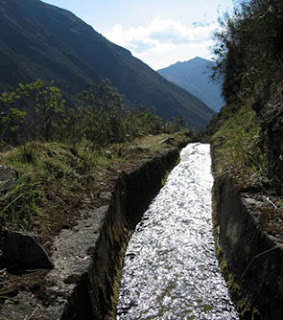
There's been a lot of talk lately about T. Boone Pickens and his ideas about what should be done to stem US dependence of foreign oil. Namely a lot of people are listening to his ideas about wind energy, electric cars, and natural gas vehicles. While nothing he advocates is particularly original to those of us who have been following these issues for years, many people see his status as a longtime oilman as opposed to some nutty environmentalist, egg-headed scientists, or "out of touch" policy wonk, as granting a sort of perverse credibility. And this does raise a need for citizens to start asking questions. Perhaps the most obvious feature of the PickensPlan is that the emphasis is entirely on reducing dependence of foreign oil, with very few references to global warming or other environmental issues.
Before getting into the meat of Pickens' agenda regarding energy and water in America, I'd like to first mention that T. Boone Pickens was a supporter of Swift Boat Vets Against Kerry in 2004.
But perhaps a more important but less known aspect Pickens' business and political agenda is that he is both a water baron and a promoter of water privatization. Which is to say that he is advocating the creation of an industry, that he has plans to make a fortune in. (More on this theme later.) And in this case it involves an industry that raises important and profound questions about society, the relationship between civilization and nature, basic human rights, and even our ability to survive as a species. Namely the idea of water as a commodity to be used for corporate profit.
Given what we know about T. Boone Pickens one has to ask what his motives might be for promoting wind energy, electric cars, and natural gas trucks. Could it be that he hopes to make a lot of money in wind electricity and natural gas? After all, he has invested heavily in wind energy and natural gas.
Furthermore other pieces of the energy puzzle such as solar energy, public transit, the smart grid, 2nd and 3rd generation bioenergy, and other more innovative ways to produce and store energy (notably stuff he doesn't seem to consider as profitable-at least for him) are noticeably vague or absent in the PickensPlan. The actual ideas Pickens advances to reduce dependency on foreign oil are at best rather conservative in terms of the technologies and policies the it promotes and those that at best get relatively little attention. At worst it looks like part of a larger design that in combination with water privatization that would have the potential to give oil barons like himself the opportunity to have more rather than less control over society and its resources than they did in the 2oth century.
If you think about it the Pickens Plan posits a solution where although alternative energy sources are important, the favored form is primarily large scale windfarms which will presumably be owned by energy barons like himself. Where natural gas and oil are increasingly scarce and while efficiency increases the main control would be higher prices, which would also benefit him. If water also becomes progressively scarce then there is also very scant and conservative emphasis on water recycling, conservation, or technologies such as aquifer recharge or low enegy desalinization. And of course, no talk about the role of democracy or policy in the matter. Instead the solution is to make water expensive and increasingly controlled by men like himself.
This would be a wonderful strategy to gain an immense amount of money and power in a resource strapped society, and would depend in large measure on reinforcing and accentuating this scarcity by marginalizing technologies that either can't be easily controlled and centralized, or involve more radical concepts. And by marginalizing the concept of public spaces, if not democracy itself.
While the Pickens energy plan does contain some decent strategies-the point of this post is not to be *against* large scale wind power or electric cars. I also do not suggest that it is inherently wrong for alternative energy companies to want to make a profit, nor that people who are wealthy or have worked in fossil fuels industry never have valid perspectives. However, it is important to recognize that the choices of renewable energy can be very political. And if anybody advocates putting most of society's eggs in relatively few baskets, it is essential to ask why. Of course, it's always possible that the advocate could be simply enamored with a particular technology. But sometimes there is a more self serving motive.
See you next post! And
Say Goodnight Readers!




